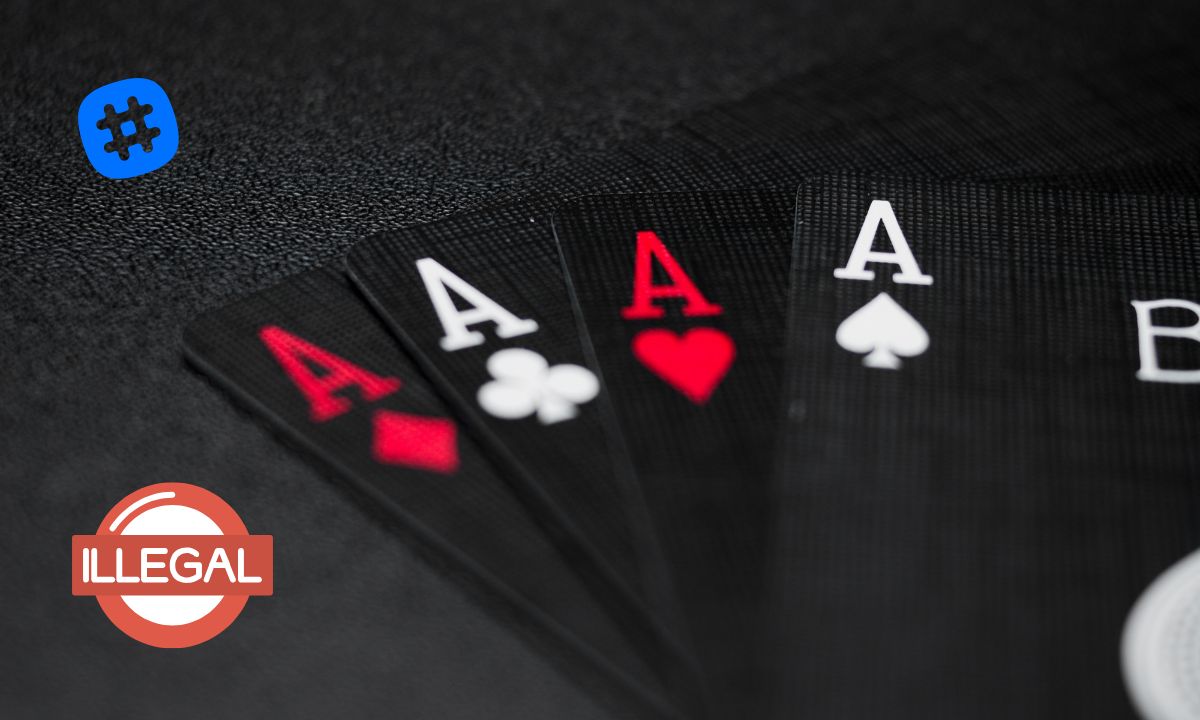Now Reading: Illegal gambling ads flood Nepali social media despite nationwide ban
- 01
Illegal gambling ads flood Nepali social media despite nationwide ban
Illegal gambling ads flood Nepali social media despite nationwide ban

Nepal’s 2019 advertising law prohibits the promotion of activities that are illegal in the country.
Despite Nepal’s strict legal ban on gambling and online betting, social media platforms like Facebook and Instagram continue to display advertisements promoting illegal betting services—raising concerns over regulatory inaction and growing financial and psychological harm to users.
Betting and gambling are prohibited under Nepal’s existing legal framework. The Muluki Criminal Code (2017) under Section 125 criminalizes participation in or facilitation of any form of gambling. The Advertisement (Regulation) Act 2019 further restricts the promotion of gambling and lottery-related products, stating that such content should not be published, broadcast, or displayed in any media format.
However, illegal betting services continue to target Nepali audiences—especially through social media.
Gambling ads thriving on Facebook and Instagram
In the past year alone, at least 15 out of every 100 Nepali users on Facebook reported seeing an advertisement related to online gambling, including services like 1xBet and other offshore betting apps. These ads often use local influencers or surrogate branding to bypass content moderation, according to several users interviewed by The Kirib, a digital media outlet based in Biratchowk.
An engineering student in Kathmandu said he first came across gambling ads on YouTube and Facebook during the FIFA World Cup. “It started with football highlights and then suddenly betting links started showing up in between. My friends were also betting, and it felt like everyone was doing it,” he said.
Although the Nepal Police and Nepal Telecommunications Authority (NTA) have blocked known websites and arrested a number of operators, they admit that identifying and removing all gambling ads on international platforms is nearly impossible without stronger digital cooperation.
A spokesperson from the Cyber Bureau of Nepal Police, speaking on condition of anonymity, said: “Our jurisdiction ends where the platform’s responsibility begins. We can arrest domestic promoters, but not control what Facebook or Instagram choose to show.”
Laws exist—but enforcement is weak
Nepal’s 2019 advertising law prohibits the promotion of activities that are illegal in the country. The same law empowers authorities to fine violators and order the removal of such content. Yet, digital ads promoting illegal betting routinely bypass oversight.
A 2023 crackdown saw TikTok banned nationwide, with the government citing its failure to curb harmful content, including gambling promotions. Social media directives introduced that year require platforms like Facebook and Twitter to register in Nepal and appoint local representatives, but enforcement remains patchy.
Digital rights activists say the government is not using the tools it already has. “There are laws to stop these ads, and there are legal mechanisms to penalize platforms that violate national laws,” said media and technology expert Binod Pandey. “But there is no strong will or digital infrastructure to enforce it.”
Missed opportunity for accountability—and revenue
Globally, several countries have taken aggressive action against tech giants for displaying betting ads in violation of local laws. In 2023, Italy’s communications authority AGCOM fined Meta €5.85 million for hosting illegal gambling ads on Facebook and Instagram. Similarly, Australia and Kenya have imposed sweeping ad restrictions and explored complete bans on gambling promotions.
Experts argue Nepal could follow suit—both to protect users and to hold tech companies accountable. “If Nepal imposed fines for illegal ads or implemented a gambling-specific digital levy, it could generate revenue while discouraging platforms from targeting Nepali users,” said Sanjay Kumar, a policy analyst based in Lalitpur.
The government recently introduced a 2% digital services tax aimed at taxing foreign digital companies, but it has yet to be enforced in cases involving illegal or harmful content.
Victims left without protection
For many Nepali users, the consequences are more than financial. A counselor working with youth in Pokhara says online betting has become a gateway addiction. “We have seen students borrowing money, missing classes, even dropping out entirely. The addiction often starts with social media promotions,” she said.
Despite growing harm, there is little recourse for victims. Consumer protection laws do not currently cover online gambling losses, and police often struggle to take action unless there is a criminal complaint or evidence of fraud.
A call for stronger action
Analysts and civil society groups are now urging the government to update its digital regulations and make tech companies more accountable.
“The platforms know these ads are illegal in Nepal. Facebook and Instagram have the ability to filter ads by geography, and they do so in countries where laws are enforced,” said advocate Ramesh Thapa, who has filed a public interest petition on the matter. “So why not in Nepal?”
As social media becomes the primary source of information and entertainment for millions, observers say failing to regulate digital advertising could deepen public harm and erode trust in institutions.
“Nepal should not be treated as a dumping ground for illegal advertising,” said Thapa. “If other countries can fine these platforms, so can we.”
















